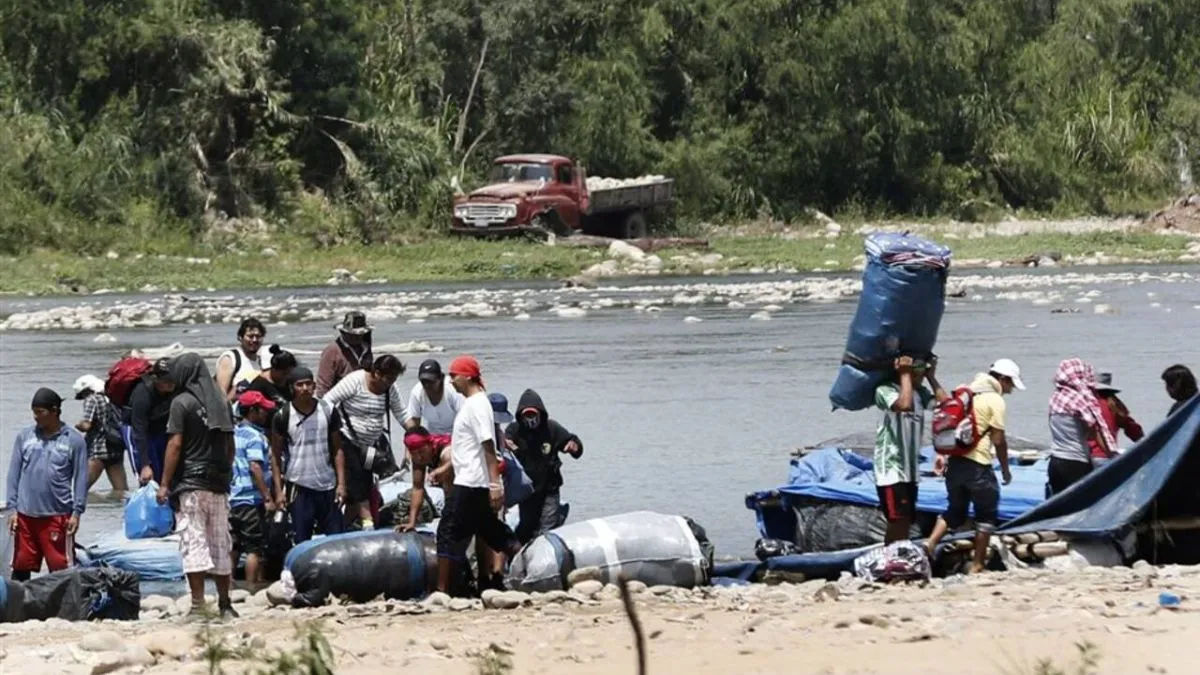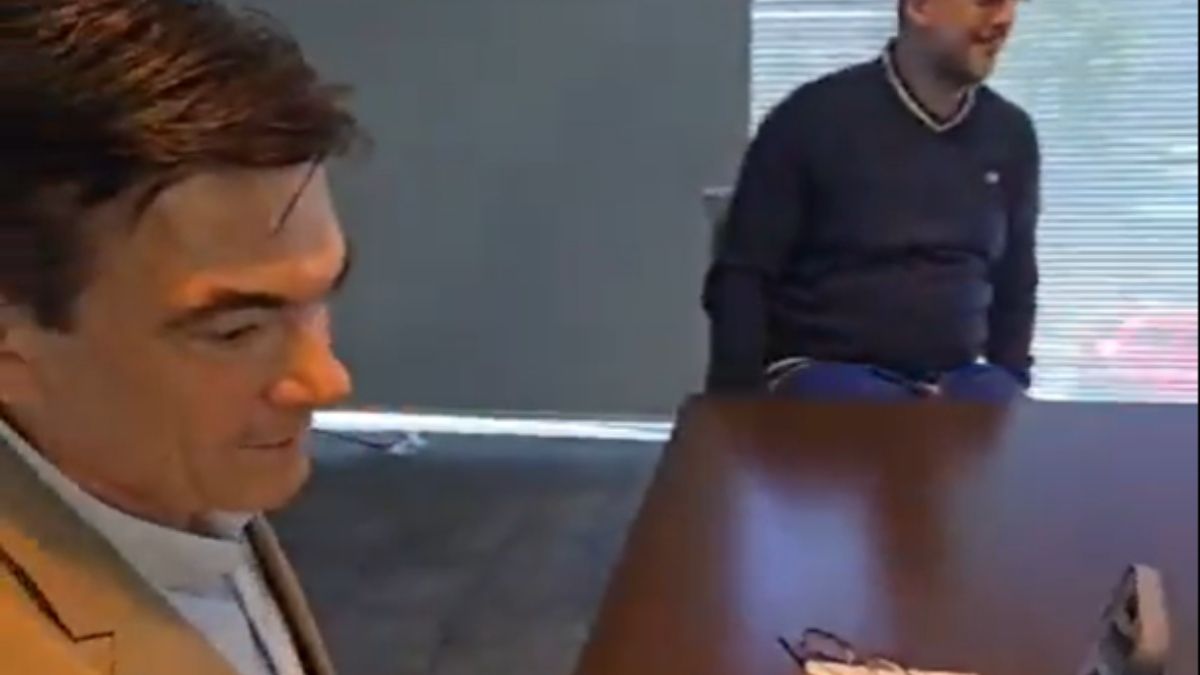The call for the construction of the fence was published in the Official Bulletin Salta. In February the envelopes will open and built in 70 calendar days. It will have three doors.
The Chamber of Commerce of the city of Oran warned that the construction of a spike wire in Blancas Aguas, in the border crossing with Bolivia, will not end with smuggling. Its owner, Ariel Zabloukhe asked to think about the people who work daily with the transport of merchandise. The Intendant Intendent Adrián Zigarán He informed that in the first days of February the envelopes will open to award the work.
The content you want to access is exclusive to subscribers.
Ariel Zablouk, president of the Chamber of Commerce of the city of Oran, located 47 kilometers from the municipality of Aguas Blancas, where a 200 -meter wire will be mounted to make the control in the border position with Bolivia more efficient, warned that this Structure will not end the exchange of merchandise outside the official inspections. “It will be another filter but it is not something that will stop smuggling because to be cut, The first thing to do is think about the 3,000 families, border workers, who are the ones who work and bring that merchandise“He said in an interview with a Salta media.


The entrepreneur, who represents the 88 that integrates that entity, emphasized that jobs must be generated for the pins. “That must be taken as the first measure because they are families that take the food dish to their homes in that way and we cannot leave them out of work,” he said. Anyway, he considered as positive some security measures that are being adopted between the Ministry of Security of the Nation, which leads Patricia Bullrichand the Salteño government with the Güemes Plan. In the last hours, the Salteño president Gustavo Sáenz supported the decision to raise the fence.
For Zablouk, smuggling matters and affects them but “the tax burden we have is 47% and that is what makes us be disadvantaged against the products that enter Bolivia.” He added that while before the advantage from our country was that the products could be acquired in installments, for some time in Bolivia the same can be done, so that option that allowed them to retain local buyers disappeared. “We all know that the economy does not accompany, so I believe that the way to follow is to lower taxes, that there is less tax burden to reduce products prices,” he closed.
Wiring in progress
While debate about the efficiency of assembling the wire between the bus terminal and the migration offices, this Tuesday 27 was published in the Official Bulletin of Salta the simple award process that launched the municipality of Aguas Blancas for the assembly of The wire fence. The specifications can be acquired at the municipal headquarters and the envelopes with the proposals will open on February 4, in the offices of the municipality.
The structure will be an Olympic fence of 200 linear meters, with columns distributed at a short distance and three access doors for the exclusive use of security forces. The project will have an execution period of 70 calendar days and will be financed by the Nationexplained the mayor. According to the official, who has been in charge of the management since October 2024, 85% of the merchandise transferred by the pins from Bolivia to Argentine territory is carried out for illegal steps, in which around $ 500 is charged.
Embed – https://publish.twitter.com/Oembed?url=https://x.com/gustavosaenzok/status/1883895505589342560&partner=&hide_thread=false
With the aim of continuing to guarantee security and urban order, and in response to an request from the national government, we have decided to channel border control within the framework of the #Plangüemes.
We will build a fence within the urban ejido, between the collective terminal and … pic.twitter.com/xcma5nakvu
– Gustavo Sáenz (@gustavosaenzok) January 27, 2025
Criticism of reciprocity
On the occasion of an act at the Salteña Government House of Services of New Ambulances, the Minister of Health, Federico Mangioneit fueled the controversy with Bolivia on the reciprocity system in the field of health, within the framework of the claim made by the neighboring country when the construction of the wire fence was announced.
During the act he argued that the treatment that Argentines receive in Bolivian territory is disadvantage, pointing out that often, although services are paid for services, Argentine citizens are not served. “We are always going to be losing because they do not have the high complexity we have. Who of us becomes attended in Bolivia? I do not agree with reciprocity,” he said.
The delivery of the ambulances went to the municipalities of San Antonio de los Cobres, Seclantás and Urundel, and are part of 34 ambulances acquired with the funds generated by the collection to foreigners. According to Mangione, this policy allowed to significantly reduce free attention to foreigners, going from more than 3,000 monthly consultations to only a few, while resources are now reinvested in the provincial system.
Source: Ambito
David William is a talented author who has made a name for himself in the world of writing. He is a professional author who writes on a wide range of topics, from general interest to opinion news. David is currently working as a writer at 24 hours worlds where he brings his unique perspective and in-depth research to his articles, making them both informative and engaging.




